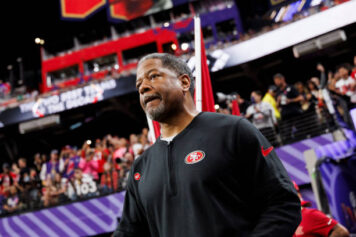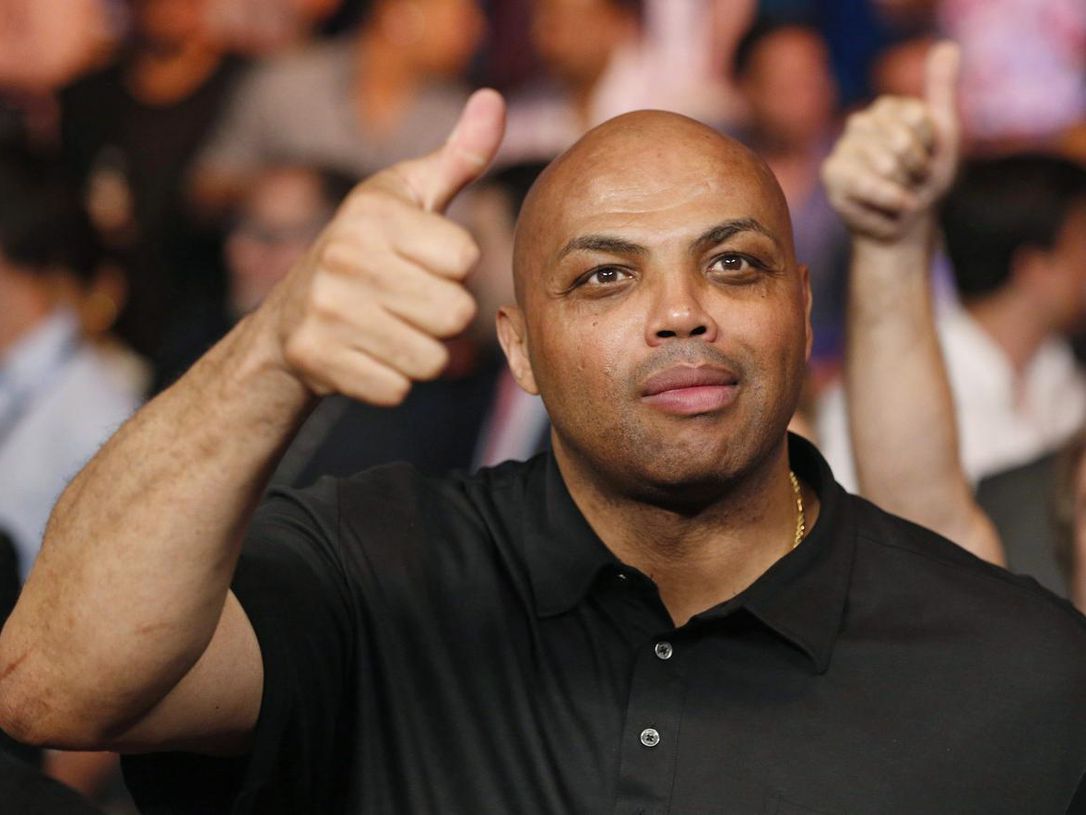Looking back to how I got to where I am. Im not sure if I was running towards something or away from it. Patrick Willis, the epitome of an NFL linebacker.
Patrick Willis is an anomaly if we let the national NFL media coverage paint a general picture of black athletes. Hes an African-American athlete who is an example of the correct way to achieve the ultimate success. In the life of Patrick Willis, there are no corners to be cut. No breaks. No time to get intimidated by the enormity of the task. Just family and grinding.
His eight-year NFL career, which ended on Tuesday, had the impact of a career lasting two decades. Its also the culmination of a journey that was equivalent to walking on hot coals barefoot. Patrick knew that lifestyle all too well and instead of straying to the streets or becoming infatuated with the quick fix, he was a young black man who walked every step with dignity and patience and beat impossible odds.
Seven Pro Bowls in eight seasons is just the icing on the cake. It doesnt tell the inside story about the poverty and obstacles Willis endured to get to the top of the NFL food chain.
Its a type of poverty that can be found in old American frontier novels and Third World countries. Willis lived a large portion of his early life without electricity in his house. Growing up in the 90’s without electricity had to be traumatizing. During cold winter nights, the family had to put the couches together and all sleep in one room pressed body to body like slaves crossing the Middle Passage to keep from freezing to death.
Up until the age of eight, Willis didnt even have running water in his home, so he and his younger brother Orrey would have to walk about a mile to fill up jugs with water and bring it back to the crib.
According to Orrey, the Willis Brothers had to make two to three grueling trips a day and as Patrick got a bit older he would carry two five gallon buckets back and forth. Orrey says it began to wear on the boys after a while, but the mandatory nature of his water runs instilled a work ethic in Patrick that erased any sense of slowing down or giving up from his character repertoire.
By the age of 10, Willis was working full-time on cotton fields. It didnt get any easier for young Willis, who was like a second
At age 17, he left his home, a double-wide in a trailer park just outside of Bruceton, Tennessee and moved in with his high school basketball coach. His brothers (Orrey and Detris) and sister, Ernicka were brought along for their safety as Willis alcoholic father was increasingly violent and abusive.
While most top athletes dreamed of pro luxuries and took school for granted, Willis was in the locker room studying during high school basketball games because when he returned home his chores and responsibilities would dominate his evening. There would be no study time, just the harsh realities of a burdened life. A life that eventually included the premature and tragic drowning of Detris.
Several people say Patricks drive and rise to stardom hit 100 following his brother’s death. While Willis dad chose to deal with the suffocating stress and tragic emotional effects of poverty by drinking, destroying his family and making an already tough life even more difficult for his kids, Willis used all of these mentally-debilitating experiences as fuel.
They created a heightened determination in Patrick and a burning desire to rise out of his impoverished conditions. Willis is the epitome of the American Dream. His story is relatable, honorable and inspirational.
Willis attended Hollow Rock-Bruceton Central High School, where he earned 4 letters in football and basketball, and three in baseball. He was also the first person in Tennessee state history to be nominated for both the Mr. Football Award for a Lineman (as a linebacker) and the Mr. Football Award for a Back (as a tailback) in the same season.
Coming out of high school Willis was a three-star recruit by Rivals.com and chose Ole Miss over Memphis.
Willis was the NFL Defensive Rookie of the Year in 2007 after being drafted 11th overall out of Mississippi. He started 112 games and had 950 tackles with 20 1/2 sacks in eight seasons. Willis also had eight interceptions – two returned for touchdowns – 16 forced fumbles, five fumble recoveries and 53 passes defensed.
He was an all-around linebacker whose game fit in perfectly with the changing landscape of the NFL. The dignified manner in which he displayed his greatness increases his portfolio as a potential Hall of Famer. Too often we hear stories of the criminal transgressions of African-American football stars. Willis is offered as a shining example of the stories that arent covered in many media publications.
”In my head, I’m already a Hall of Famer,” said Willis, the San Francisco 49ers defensive captain, locker room general and eloquent inspirational spark plug. ”I am leaving this with closure, saying that I am happy today, more happy today than I was the day I was drafted. That says something to me.”
Most NFL minds would cosign Willis legitimate boast.
”He redefined his position,” coach Jim Tomsula said. ”That’s a different man. Pat changed a lot of lives here. Pat will change a lot of lives. … I’ve never heard Pat Willis complain.”
People on social media were asking why Willis was so emotional at his retirement press conference on Tuesday. His eyes were swollen and Willis wept as he recited scripture that related to the chronic injuries that have plagued his feet and rendered one of his greatest physical gifts obsolete.
Willis 2014 season was cut short by a toe injury that required surgery and because of sore feet. Willis had missed six games in his career before this latest injury sidelined him for the final 10 games of 2014 for San Francisco, which limped to an 8-8 finish without him and missed the playoffs for the first time in four years.
About a half-dozen of his 49ers teammates attended his news conference at Levi’s Stadium. Willis regularly wiped his eyes with a tissue. Like the true class act he is, Willis signed autographs for fans outside team headquarters and thanked the regular media who covered him.
”I have no regrets. I’ve had the most amazing eight years of football of my life. I am so humbled to have had this opportunity. I’ve been so humbled to have played this game.”
When healthy, Willis and homie NaVorro Bowman were arguably the best LB duo in the game. They came close to a Super Bowl ring in 2012, when the 49ers got edged by B-More in New Orleans.
If you know anything about Willis, his dawgs have got to be barking louder than a mug for him to hang it up. Adversity to him is like leveling a RB with saucy breakaway moves Its nothing!
”I would love nothing more than to be able to lace up them cleats and not worry, ‘Are my feet going to be all right today just to practice so I don’t look old at 30?”’
”These feet, boy, boy, boy, I’ve made no excuses,” said Willis, who notes his feet ”spoke” to him. ”When you don’t have no feet, that’s what has made me what I am. I no longer have in these feet to give you guys that kind of ‘Wow.”’
His legacy should leave people with enough wow to hear his name spoken for years to come. To truly understand Willis improbable come up and the obstacles that he had to overcome in Tennessee is unfathomable for most of us. He has a power that transcends the football field and the impact hes had on people and the deep impressions hes made on their lives are celebrated, especially in his retirement.



